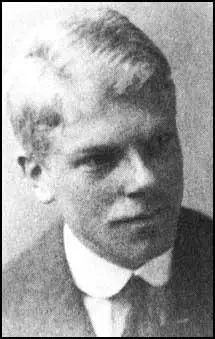Geoffrey Donaldson

Geoffrey Donaldson was born in 1893. He was educated at Oundle School and Caius College, Cambridge, Donaldson and intended becoming a botanist.
On the outbreak of the First World War, Donaldson, instead of returning for his final year at university, he volunteered for the British Army, and became an officer in the Warwickshire Regiment. Donaldson was sent to the Western Front and in March 1916 he was promoted to the rank of captain and became commander of C Company.
In July 1916, Donaldson became involved in the offensive near Neuve Chapelle. This was a diversionary move to attract German troops away from the Somme. Donaldson realised that he faced a high chance of being killed and wrote to his mother on the day before the attack, that there was an "urgent need of drastic measures on our front to hold back Hun reinforcements for the South and to do this certain troops had to be, well, more or less sacrificed." The following day on the 19th July 1916, Geoffrey Donaldson was killed while leading his men across No Man's Land.
Primary Sources
(1) Captain Geoffrey Donaldson, letter to his mother (1st June, 1916)
What impressed me most (about his first visit to the front-line trenches) was the hopelessness of it all. I feel convinced that fighting will ever end this war.
(2) Captain Geoffrey Donaldson, letter to his mother (23rd June, 1916)
The night before last I took out a patrol of four men about half way across No Man's Land. There is comparatively little risk attached to this work but it is of course a considerable strain on the nerves. Last night, I went out with Wakefield and a wiring party, that is to say with about six men improving our wire entanglements. I consider on the the whole this is a nerve-racking a job as any, more so than patrol work. You must not think I shall go out like this every night. I have been out the last two nights as much to set an example and get the thing going as anything.
(3) Captain Geoffrey Donaldson, letter to his mother (16th July, 1916)
I can tell you that in the 30 minutes before the attack started, I came nearer to "having the wind up" or in other words losing my nerve than has ever the case before. At 8.30 p.m. the show started. I had all the men in the trench out of the dugouts and we all had our gas helmets on. It was like an appalling nightmare as you look like some horrible kind of demon or goblin in these masks. There were words of commands along the line from RE and then a loud hissing sound as the taps were turning on and the deadly greenish white vapour poured out of the jets and slowly blew in a great rolling cloud towards the opposite line of trenches.
(4) Captain Geoffrey Donaldson, letter to his mother (18th July, 1916)
There is urgent need of drastic measures on our front to hold back Hun reinforcements for the South and to do this certain troops had to be, well, more or less sacrificed. That is war, of course, and all in a day's work.
I don't think anything will affect my nerves now, so don't worry about me, dear, because I shall pull through all right and I am strong enough to stand any amount of fatigue.
(5) Letter of condolence to Mrs. Donaldson from the battalion commander of the Warwickshire Regiment (26th July, 1916)
I was in our front line trench and talked with your son several times during the seven hour' bombardment, before the attack. Both he and Captain Bethel were very cool, and encouraged the men by their example. As you may know, the 2/7 Battalion was the only one in the whole Division to get across into the German trenches and it was entirely owing to the cool and well-timed leading of Captain Bethel and your son, and the splendid discipline of the men, that they were able to achieve such a glorious record for the Battalion. But alas it cost them their lives. The gap they have left amongst us can never be filled and the loss to you is, I know, terrible. I pray God that you may bear up under it. Your son died for his country, what more could he do.
(6) Letter of condolence to Mrs. Donaldson from the headmaster of Oundle School (July, 1916)
It is too hard to bear. This terrible sacrifice of all our best boys, and of all the best of the nation. It is too sad for words to think that your keen, capable, enthusiastic son, with all his capabilities for the future, should be thus sacrificed. How well I remember him, such a fine boy he was, so keen, so good.

